Almost two and half years have passed since 51.9% of British voters elected to leave the European Union, a period that has shaken the British political system and Europe as a whole. The negotiators on the European side, feeling betrayed by the decision to disengage from the mainland, were tough on the British. According to senior spokesmen on both sides, such as the president of the European Council, Donald Tusk, a final version of the agreement could be signed in the next few weeks or at any rate, before the end of the year.
The dispute within Britain is between Prime Minister Theresa May, who is interested in maintaining close relations with the EU, and people from her political party who would be satisfied with limiting collaboration to customs. There still remain some issues concerning the borders and movement between Britain and the EU.
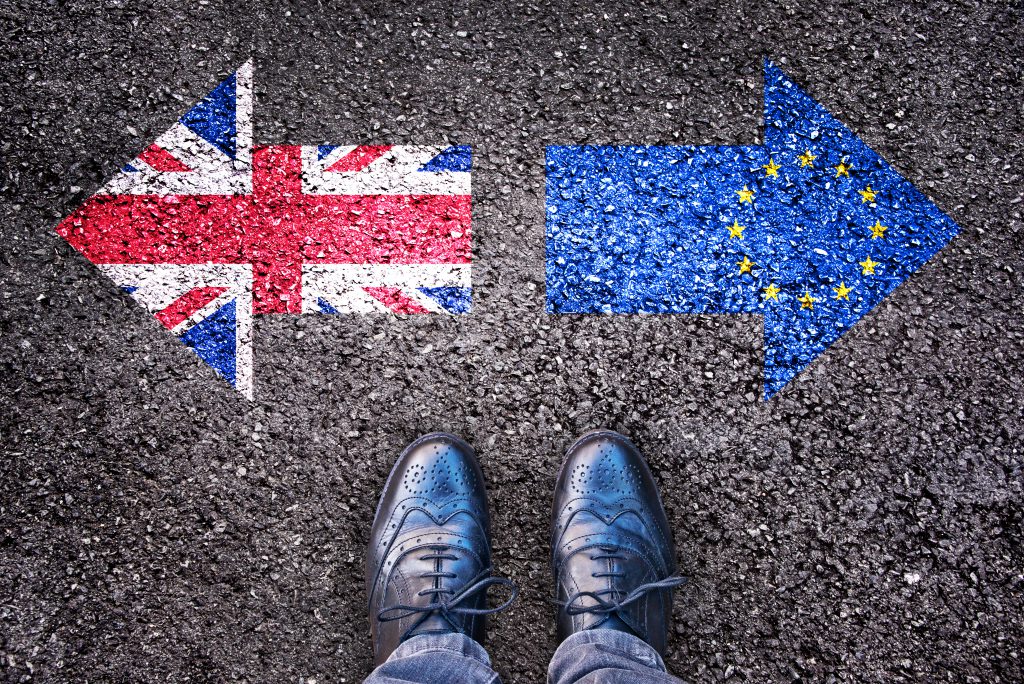
The implementation of Brexit, to whatever extent is decided, will threaten the unity of the United Kingdom. Faced with the choice of being British outside of Europe or European within Britain, it seems that there are two polarized camps and that old antagonisms, which Britain thought had been wiped from the face of the earth are beginning to raise their heads once again.
A survey conducted at the end of May for Edinburgh and Cardiff Universities and published in October in a study of post-Brexit Britain, astounded the Brits. The survey was conducted among more than 5,000 English, Scottish and Irish and turned up dramatic findings. First, 87% of those who supported Brexit in Northern Ireland said that they were prepared to pay for the collapse of the 1998 peace treaty between the Protestants and the Catholics, provided that Brexit take effect. The absolute majority of Brexit supporters in Northern Ireland are Protestants, and the majority of those who oppose it are Catholics, such that Brexit became a reason to renew violence in the North. 75% of supporters of Britain’s conservative party declared in the same survey that they are willing to pay for the collapse of peace in Northern Ireland if that is the price required to realize Brexit. Those who define themselves as conservatives in Britain will be happy to separate from the Scots too – 79% of them support Scottish independence. If Scotland initiates another referendum to disengage from Britain, the conservatives will be their most trusted allies.
If the survey does not reflect the atmosphere in Britain, then the imminent implementation of British withdrawal from the EU will accelerate a number of processes in British society that may lead to tension and even violence.
A second attempt
After years in which the majority of Scots supported remaining part of Britain and made no constitutional attempts to separate from it, in 2014, Scotland conducted a referendum, with many Scots expecting to break away from their union with the British after more than 300 years.
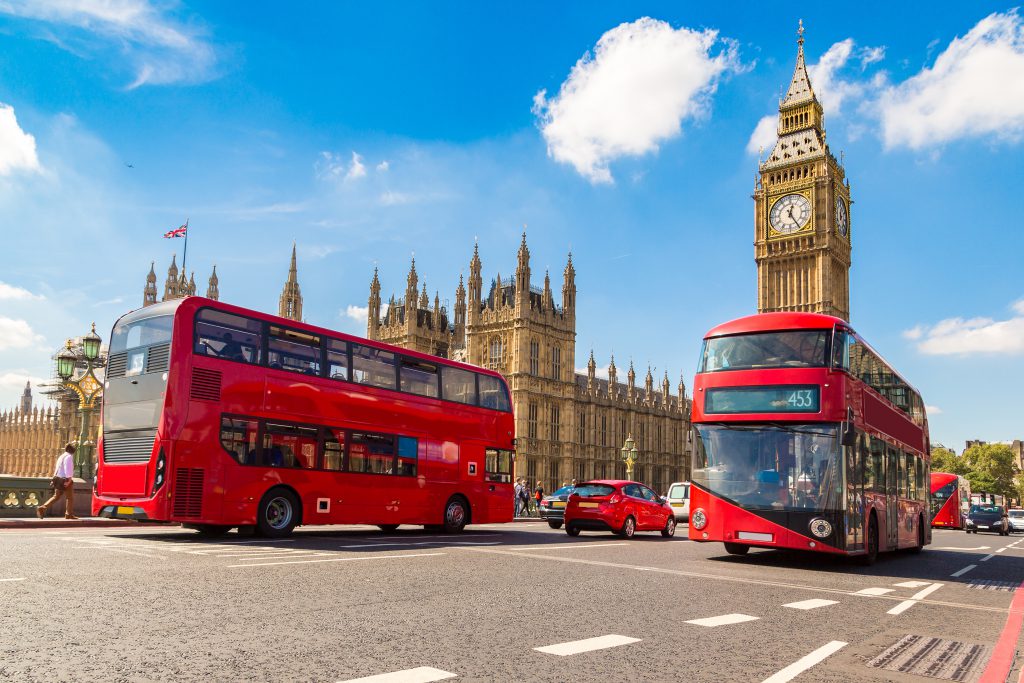
For the British, a Scottish departure is perceived as a big blow. British oil reserves are located in the North Sea and will belong to Scotland – Scottish politicians who favor separation from Britain, “Britexit”, have long declared that oil reserves will be nationalized by the Scottish state. These 2.5 billion barrels are destined to play an important role in Scotland’s transition into independence.
But there were also risks for Scotland. One of the central arguments against Scottish independence was introduced by the British government – Scotland’s departure from Britain would mean their leaving the European Union.
Every attempt to join the EU as an independent country was dependent on Britain’s benevolence, who, like any other member of the union, had veto power over which new states could join. The Scots, who love being a part of Europe (62% of them voted against Brexit in 2016), considered their options and decided not to separate from Britain (with a majority of 55%). Two years later, with the victory of Brexit-supporters, everything has been turned upside down. Britain will no longer be able to block Scotland’s entrance into the EU, and Scottish independence has suddenly become a profitable proposition.
In light of the fact that most supporters of the ruling party support Scottish independence, and today it appears that most Scots do too, it is likely that a new referendum will be announced in the coming year, and the result this time will probably favor those who want independence.
In Northern Ireland, the story is a little more complex. The Good Friday Agreement in 1998 allowed anybody born in Northern Ireland to an Irish parent to maintain Irish citizenship, in addition to his/her British citizenship. About half a million out of the 1.8 million residents of Northern Ireland hold an Irish passport only or in addition to a British passport. Since Ireland is a member of the EU and has no intention of leaving for the time being, the Irish passport holders will remain part of the EU, while the rest of Northern Ireland will be just British citizens. Of those same half a million, there are those who have dual citizenship, and they will be the only ones to enjoy both the benefits of British citizenship as well as those of European citizenship.

Drawing the Line
The border between Ireland and Northern Ireland has not really existed in the last 20 years. Since both Britain and Ireland are members of the EU, the border, at its 208 crossing points, is easily crossed every day by thousands of cars. Brexit will turn this border into an EU border and will make it harder for anyone without a European passport to cross. Irish who wish to cross to Northern Ireland may encounter similar difficulties. This relative separation between the Irish and the Northern Irish, as opposed to strengthening the connection between the British in Northern Ireland and the motherland, is likely to add to the tension.
It remains unclear, until the final outline of the Brexit is formulated, whether the Good Friday Agreement will continue to exist or if a new agreement will be required. The wording of the 1998 agreement clearly states that Britain and Ireland are partners within the framework of the European Union. This is not purely technical speak. As members of the EU, the Northern Irish enjoy legal protections, and the British themselves were bound by the laws of the Union. In terms of the Catholic Irish, who felt like second-class citizens and fought against the British for decades through terror, the issue of human rights was significant in persuading them to sign the agreement.
As opposed to Scotland, the British generally and the conservatives in particular are willing to fight for Northern Ireland to remain part of Britain. Beyond the historical reasons and the fact that half of the Northern Irish consider themselves British, there is also a practical point. The DUP, the biggest Protestant party in Northern Ireland, represented in the British parliament, gives Theresa May the majority she needs in order to hold onto power. So if the Irish Catholics want to join Ireland or the EU, they will encounter fierce resistance, and the peace agreement may collapse.
Wales, the fourth rib of the United Kingdom, has largely remained faithful to the British. Public support for Welsh independence stands at only 15-25% however, once the Brexit process is complete, things might change. A study conducted in Wales regarding the consequences of Brexit showed that for 17 out of 18 matters that were examined, the effects would be negative for the Welsh. The leader of the National Party in Wales, Adam Price, believes that because of Brexit’s damage to Wales, the public will be much more willing in the future to hold a referendum regarding independence.
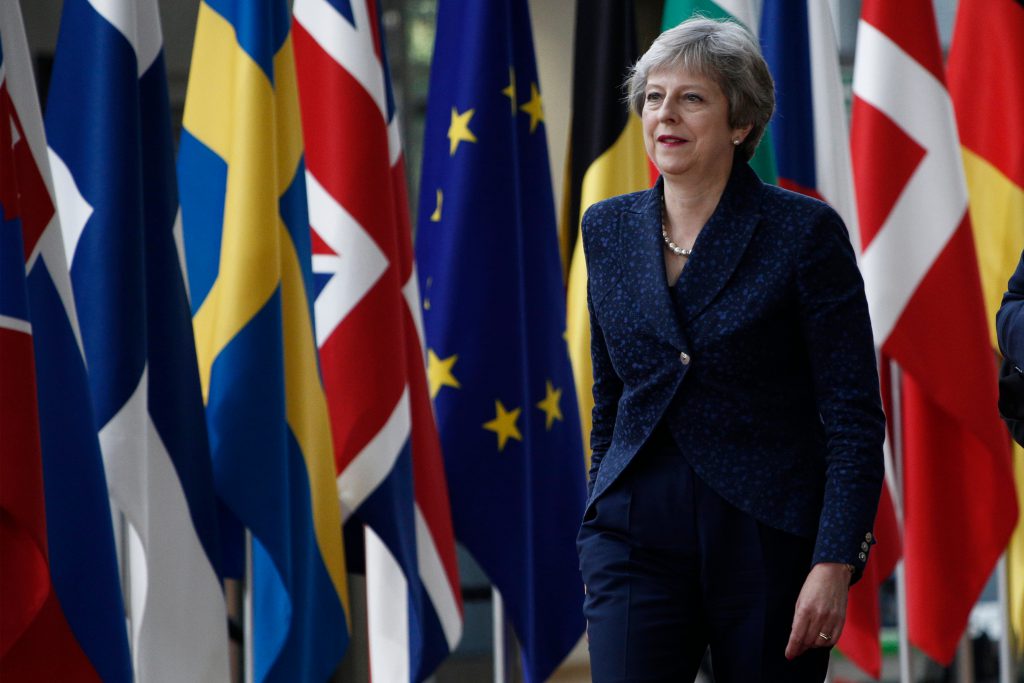
Dangerous Division
A study entitled “The UK in a Changing Europe”, published in January of this year by an institute composed of researchers from the British Academy, shows that support and opposition to Brexit cross traditional party lines, but are well divided between clear demographic lines. As opposed to Scotland and Northern Ireland, there was great support for Brexit in England and Wales. The educated tended to support remaining in the union while the less educated tended to support separation. White Protestants are the main supporters of Brexit, as opposed to different minorities. Among the minorities another division was found – between British citizens of Indian origin, who overwhelmingly supported leaving the union, and the other minorities who wanted to remain. The explanation for this, according to researchers, is that British Indians have already been in the UK for several generations, and they are represented in all sectors of society by integrating within British society, while newer immigrant populations avoid assimilation and see Britain as an opportunity to be be taken advantage of.
Such ethnic division regarding Brexit leads to an increase in demonstrations of British nationalism. Brexit reorganizes British voting patterns. Although past support for the conservative party has been high among white people and people of Indian descent, now, with the party flying the Brexit flag, separatist supporters identify with it even if they voted for other parties in the past. Labor, on the other hand, attracts members of other minorities. However the Scottish, the Welsh and the Irish, who in the past showed great support for the labor party, are presently more likely to support nationalist Scottish, Welsh and Irish parties, respectively.
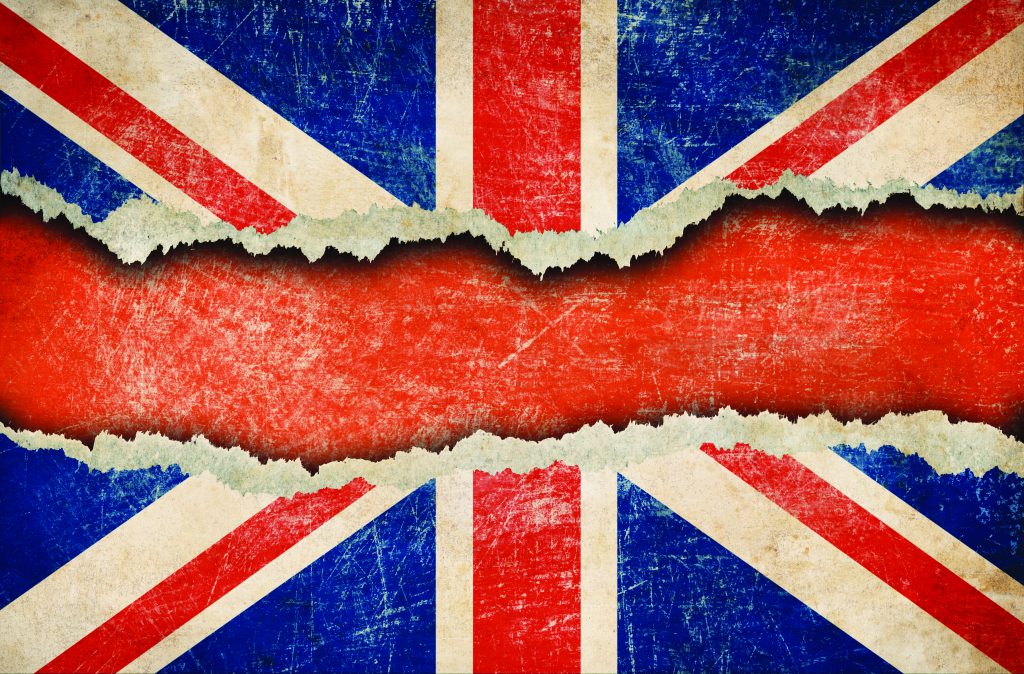
According to Her Majesty’s government, in 2012-2013, 42,000 hate crimes were recorded in Britain. Within four years, according to the British Police, since Brexit, that number has doubled to over 80 thousand between 2016-2017. The chief inspector also warned that after Brexit, an additional increase in hate crimes is expected.
70% of hate crimes were race-based, 11% were directed at members of the LGBTQ community, 8% were based on religion, and 7% against people with disabilities. Even antisemitism has already raised its ugly head in Britain, and 2017 broke the record of the most anti-Semitic events in recorded British history, with more than 100 incidents a month.
The phenomenon of Islamophobia in Britain is almost identical as far as the annual number of incidents, and the sharp rise in such incidents. More than 1,200 incidents occurred in 2017, a 26% increase from the previous year. The rise in antisemitism today can be attributed to the Muslim British and the British Left, while the rise in Islamophobia is explained by the activity of the British Right.
None of the camps condones racist violence and differ only in terms of their aim. In fact, antisemitism in Britain has become institutionalized, with new affairs relating to the labor party and its leader Jeremy Corbyn being exposed practically daily. It is interesting to note that white people in Britain also feel they are being attacked. In a survey in 2008, 29% of them said that they feel they are treated worse by government agencies because of their skin color.
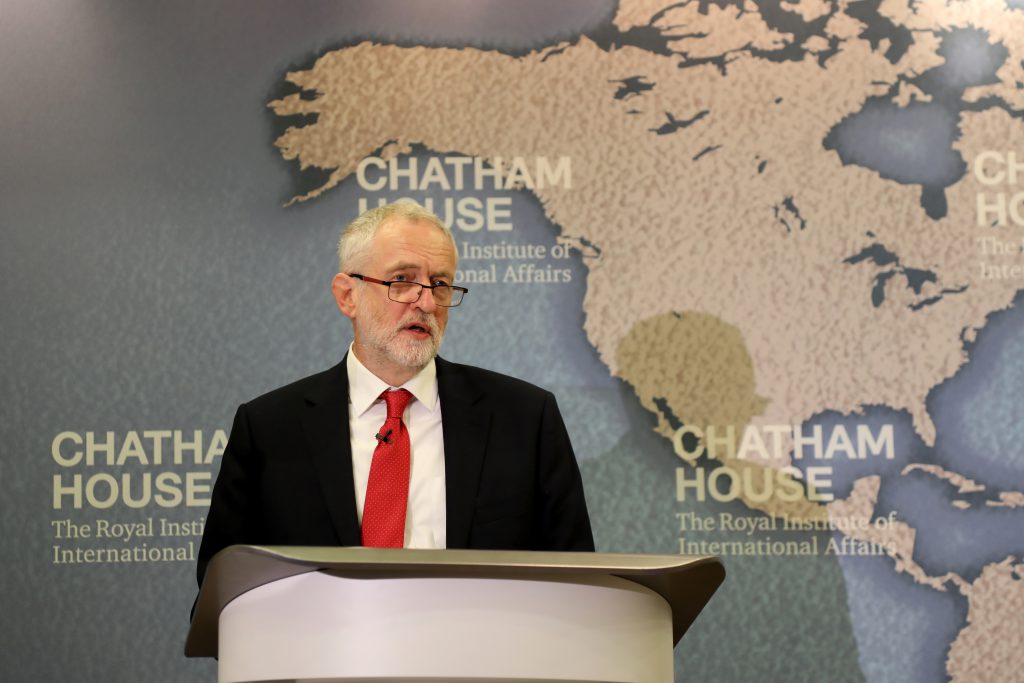
A new age began for the British isles on the day that Brexit was approved. Britain entered a course which includes disengagement from the European Union, future separation from Scotland and possibly Northern Ireland as well as an increase in racism. This social disintegration would produce a new, smaller, more English Britain. The British will face many dilemmas concerning their national identity. The way in which they deal with this challenge will indicate to the rest of the countries considering leaving the EU how things might turn out.
The Israeli angle
One of the questions that Brexit raises is how Israeli-British relations will look after the shift. Britain today is considered a friend of Israel, but in fact, a significant portion of anti-Israeli activity comes out of London. This includes BDS, huge pro-Palestinian demonstrations and attempts to prosecute Israeli officials for war crimes, and the activities of anti-Israeli organizations which choose to make their headquarters in London.
Leaving the EU will make Britain a less desirable and less convenient place from which to operate legal and diplomatic battles with Israel, because these organizations would prefer a city that belongs to the European Union which would enable free movement and the various protections that the EU grants to its citizens and organizations.
The number of immigrants to Britain, a population that is generally considered hostile to Israel, is expected to decrease as a result of British policy and the new reality. The projected separation of the Scottish and perhaps that of the Irish farther down the road, will further reduce the number of anti-Israel elements in Britain.
Given the dynamics of the talks between Britain and the EU until now, it seems that the British will take opposite positions to the EU on various issues, which may give Israel the opportunity to gradually win them over. If successful, Israel will find that Brexit creates new political opportunities.
1535 – Wales becomes a full partner in the English kingdom under Henry VIII
1707 – Scotland unites with the English kingdom, creating Great Britain
1801 – Great Britain and the Kingdom of Ireland, which has been under English control since 1171, unite
1922 – Free Ireland is liberated from British rule and from the majority Protestant North of the island
1973 – Britain joins the European Common Market
1998 – Good Friday Agreement ends hostilities between Catholics and Protestants in Northern Ireland after about 30 years and over 3,500 killed
* Translated by Zoe Jordan




